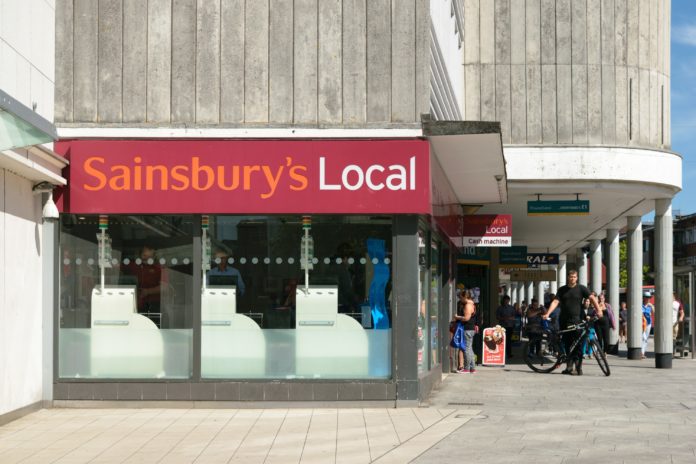Martyn Fisher hears how wholesale can grow amid mega-supermarket moves
If approved by the Competition and Markets Authority, the combined Sainsbury’s/Asda business would be the UK’s largest grocer with a 31.4% market share, beating current market leader Tesco’s 27.6% share.
With the pair commanding nearly 60% of the supermarket trade, could we be in a situation where many FMCG suppliers are under even more pressure to give them premium service, and terms, at the expense of smaller customers, such as wholesalers?
James Brown, head of the UK consumer and retail practice at consultancy Simon Kucher & Partners, thinks so: “Whilst the Sainsbury’s/Asda deal does not directly involve wholesale in the same way the Tesco/Booker deal did, grocery wholesalers are right to be nervous about the impact,” he says.
“The biggest risk for food and drink wholesalers will be being on the wrong end of a ‘rebalancing’ exercise. If a supplier feels compelled to drop prices or improve terms for Sainsbury’s/Asda, then many will do this without securing any additional volume. The supplier base has over 80% overlap, so there will be a lot of this.
“The result will be that they look to rebalance their pricing between customers – meaning that if Sainsbury’s/Asda comes down in price, suppliers will look for it to go up for someone else. Given the relative buying power for many wholesalers, there is a risk they will be on the receiving end.”
So, what do you make of this situation, and of Brown’s belief? Can you foresee a scenario where this does occur? Whatever your opinion on this subject, how are you reacting to this latest mega-merger in order to ensure that you remain competitive and in a position to grow? I gauged opinion on the matter from a selection of UK FMCG wholesalers. Here is what they had to say.
Denys Shortt: DCS Group
 “I do not see this move leading to suppliers nudging up prices to wholesalers – after all, they want the industry outside the big supermarkets to succeed.
“I do not see this move leading to suppliers nudging up prices to wholesalers – after all, they want the industry outside the big supermarkets to succeed.
“The UK needs a vibrant independent trade; one that gives opportunity to start-ups and farmers, and for the ‘Made in UK’ brand. The big chains will attempt to suffocate this with demands for cheaper prices and imports.
“Therefore, more than ever before, the Government must have a fair system in place for
all. The Groceries Supply Code of Practice will become more important than ever, as increased pressure will be on the suppliers.
“More broadly, the activity poses lots of questions about ‘where now?’ for the industry. How will Amazon react, for instance? Will it come in for Sainsbury’s, or will it go in for Morrisons? Elsewhere, where does Waitrose sit in all of this? And, of course, Aldi and Lidl? My bet is Amazon will now try and team up with one of the new ‘big two’ here in the UK.”
Alam Ameer: Wanis International
 “If this deal goes ahead, it will leave more power in the hands of two giants, with disproportionate power over their supplier base
“If this deal goes ahead, it will leave more power in the hands of two giants, with disproportionate power over their supplier base
“Already we find suppliers to wholesale will give better deals to the high-street multiples, meaning that wholesalers and, by consequence, ‘indies’ can never hope to compete on price.
“The supermarkets exert undue pressure on suppliers to provide them with the best pricing and promotions as it is. In comparison, wholesale is splintered, with many smaller players who cannot offer the same volumes. This merger will just raise the pressure on suppliers.
“One supplier has come up with a range for the multiples and another for wholesale as a way to avoid competing with each other. But this is difficult to manage and achieve economies of scale. The alternative is to choose a channel and not supply the other.
“To survive, FMCG wholesalers will need to specialise in diverse ranges which the main supermarkets cannot hope to carry due to space constraints, or ranges that are very local/niche and not cost-effective for a multiple to carry.”
Tony Cox: Splendour Wholesale
 “I do not think that this deal is necessarily bad for the food and drink wholesale sector.
“I do not think that this deal is necessarily bad for the food and drink wholesale sector.
“The trend recently is that independent retail and convenience keeps getting stronger – especially for those businesses which are disciplined, which are doing the right promotions and which have good lighting in-store, among other things. So, they, and us, do not have too much to worry about with this latest big deal.
“Established and focused wholesalers in particular have nothing to fear. This is because not many people are trying to get into this game right now. But again, it comes down to ensuring you keep getting the basics right and have the necessary support from your buying group.
“In terms of suppliers, and what might happen on the back of Sainsbury’s and Asda merging, I think the squeeze will continue to happen for everyone – downsizing products, or however else it is done, in order to claw back some lost margin. But working together for the benefit of both parties will remain essential.”
Craig Brown: JW Filshill
 “The move did not come as a huge surprise and it was to be expected that there would be some sort of reaction to the Tesco/Booker deal.
“The move did not come as a huge surprise and it was to be expected that there would be some sort of reaction to the Tesco/Booker deal.
“There are synergies in that the strength of one is the other’s weakness. The weakness of Sainsbury’s is price, which Asda is renowned for. But Sainsbury’s has Nectar, Argos and a presence on the high street that Asda does not have.
“The move means that wholesalers must work more closely than ever with suppliers. Sainsbury’s will be tapping into Asda’s buying power, although there is a danger that consumer choice could be limited if there is too much consolidation in the marketplace. All the same, I do not think there will be much impact on our independent retail customers.
“Suppliers will need to recognise that the wholesale route to market is crucial, particularly the mid-tier suppliers. We take a collaborative approach to working with suppliers and that is something we are committed to strengthening as it has mutually beneficial results.”
Nev Bihal: Time Wholesale
 “I think this move is the tip of the iceberg. You see it and think a can of worms has been opened.
“I think this move is the tip of the iceberg. You see it and think a can of worms has been opened.
“But all we think is, ‘Focus on what we do and do it well.’ You have got to keep innovating in this game.
“We are opening a new site that is nearly three times the size of the previous one. Some would say it is ambitious, but we are turning people away from the car park in the old site, so we know this move is the right one and will future-proof the business.
“But, at the same time, we are seeing amazing growth on the website and are preparing to launch an app, so it is also about ensuring that we focus in both areas to ensure that we put ourselves in as strong a position as possible.
“In terms of fears over pricing, we spoke to multiple suppliers at the Landmark Conference and told them what we are doing and why, and they all seemed to get it, and why they should continue working with us for the benefit of all parties. Working together is key – that cannot be stressed enough.”
Ali Guvemli: Hyperama Wholesale
 “The market is changing, and at such a rapid pace, so this move did not come as a major shock. But consolidation is leading to the number of companies shrinking, with some coming into a lot more power.
“The market is changing, and at such a rapid pace, so this move did not come as a major shock. But consolidation is leading to the number of companies shrinking, with some coming into a lot more power.
“For the independent cash & carry sector, I would not say we are in full danger, but we do need to be careful. For us, the response has been to expand into different areas.
“We have shifted to dealing with manufacturers to incorporate a range of own-branded lines and are offering everyday low prices on these. We have also started direct-sourcing on our fresh produce items, to help bring costs down, but being careful to ensure that we keep the quality high.
“Doing things like this will help us to stay competitive and grow at a time of big moves elsewhere.
“Diversification is so important for wholesalers, more so than ever. Looking away from the retail side, foodservice is such an important area. We now have a dedicated Hyperama foodservice webpage.”
Julie Dunn: Dunns Food and Drinks
 “Wholesalers need to do what we do best – and in Scotland that means sharing information and forging stronger relationships with suppliers. That is the ethos behind the Scottish Wholesale Association (SWA)’s Scottish Wholesale Achievers scheme, and this is the time to put it into practice.
“Wholesalers need to do what we do best – and in Scotland that means sharing information and forging stronger relationships with suppliers. That is the ethos behind the Scottish Wholesale Association (SWA)’s Scottish Wholesale Achievers scheme, and this is the time to put it into practice.
“When wholesalers and suppliers put their heads together we can do amazing things to help our customers grow their businesses, but also set ourselves on new routes to market and profitability.
“Some industry experts are saying the deal could impact on wholesalers but I think suppliers are savvy enough to realise that wholesalers will not accept that – we are such an important cog in the supply chain and an increasingly important route to market.
“Suppliers and wholesalers working together means a great deal to me, to Dunns Food and Drinks and to the SWA, of which I am president. Working collaboratively is something we strive to do – with other wholesalers and, crucially, with suppliers. There is nothing to gain from not working together – it is a mutually beneficial approach to business and something, in Scotland, that we pride ourselves on.”








